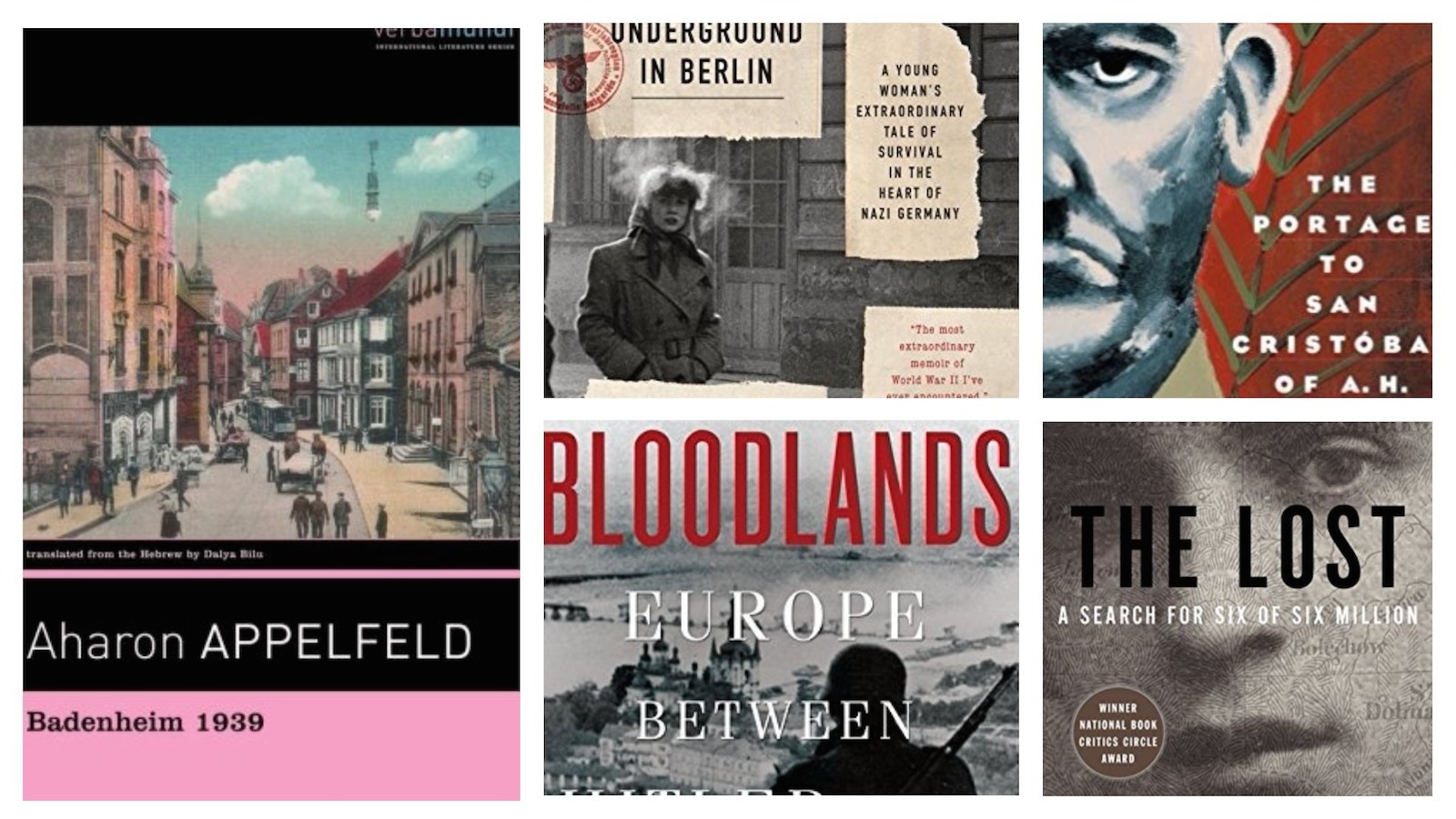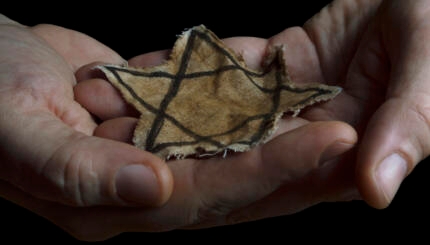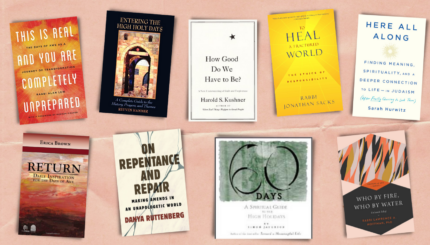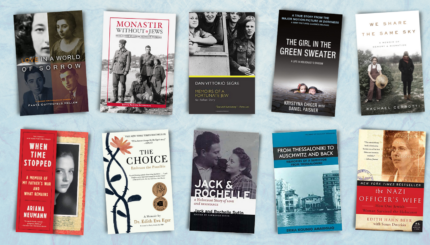With regards to Holocaust literature, the canon has been pretty well established. Seminal texts like Elie Wiesel’s Night, Anne Frank’s diary, Art Spiegelman’s Maus, Viktor Frankl’s Man’s Search for Meaning, and Primo Levi’s Survival in Auschwitz, have been, almost exclusively, informing our notions of what the Holocaust was actually like.
When German philosopher Theodor Adorno famously said that “to write poetry after Auschwitz is barbaric,” he meant that there was no way aesthetics—or art—could live up to the barbarism of the Holocaust. Maybe he was right. But here are 10 lesser-known texts that can, at the very least, increase our understanding—and our empathy.
Badenheim 1939 by Aharon Appelfeld
One of the great Hebrew novels, Badenheim 1939 was beloved writer Appelfeld’s first novel to be published in English in 1980. It revolves around a fictional, mostly Jewish resort town in Austria, in which the Nazis, never explicitly mentioned, are disguised in the abstract as the “Sanitation Department,” a specter that drives the Jewish vacationers to distraction. Appelfeld was a survivor himself — and every word he wrote rings true.
Bloodlands: Europe Between Hitler and Stalin by Timothy Snyder
Yale historian Snyder’s 2010 book explores the messy intersection between Hitler’s Final Solution and Stalin’s vicious ideology that resulted in the deaths of an estimated 14 million people throughout Europe’s “bloodlands”: Poland, Ukraine, Belarus, Russia and the Baltics. Snyder’s hypothesis is profound, but simple: The Nazis weren’t just the “villains,” and the Soviets weren’t just the “heroes.” Rather, neither regime could have murdered as many as it did without the aiding and abetting of the other. An important history lesson often overlooked.

Help us keep Jewish knowledge accessible to millions of people around the world.
Your donation to My Jewish Learning fuels endless journeys of Jewish discovery. With your help, My Jewish Learning can continue to provide nonstop opportunities for learning, connection and growth.
Eichmann in Jerusalem: A Report on the Banality of Evil by Hannah Arendt
A towering book by a towering figure, theorist and critic, Arendt’s most famous work chronicles Adolf Eichmann’s 1961 trial in Jerusalem. Famous for the coining of the phrase “the banality of evil,” which refers to the moral and emotional detachment Eichmann displayed, this book is so much more: a dense, exploratory treatise on the nature of humanity.
Five Chimneys by Olga Lengyel
Lengyel was a surgical assistant in Transylvania when she was deported to Auschwitz; she was able to secure work in an infirmary, a job that ultimately saved her life. This 1946 memoir is an unflinching account of her time in that area, her interactions with Dr. Josef Mengele and her observations of the medical experiments performed on inmates. A deeply uncomfortable read, Lengyel’s memoir is a necessary living, breathing document.
King of the Jews by Leslie Epstein
Leslie Epstein’s greatest novel, this 1979 book gives a fictional account of Chaim Rumkowski, the Polish Jew appointed by the Nazis as the head of the Council of Elders (known as the Judenrat) in the Łódź Ghetto during the occupation of Poland. Rumkowski was seen as a villain, famous for his role in delivering children to the Nazis for extermination.
Ponary Diary, 1941-1943 by Kazimierz Sakowicz
In 1939, Sakowicz, a non-Jewish Polish newspaperman, moved to a cottage in the Lithuanian suburb of Ponary. From his backyard, through the trees, he could see a clearing. In that clearing, from 1941 to 1943, between 50,000 and 60,000 Jews were murdered by Nazis and their Lithuanian collaborators. Published in English in 2005, Sakowicz’s diary is the most unflinching record of death you will ever read—and the fact that he isn’t entirely sympathetic makes it all the more difficult.
The Lost: A Search for Six of Six Million by Daniel Mendelsohn
That this gripping story of memory and tragedy won both the 1996 National Jewish Book Award and the National Book Critics Circle award should clue you in to how extraordinary this book is. What begins, familiarly, as the story of a young boy learning about the tragic but mysterious fate of his relatives in the Holocaust, ends in a continent-spanning labyrinth, a sad and seductive tale of near mythic proportions.
The Portage to San Cristobal of A.H. by George Steiner
Easily the strangest book on this list, literary critic and philosopher Steiner’s experimental 1981 novella chronicles a revised history in which Hitler survives and goes into hiding for 30 years in the Amazon jungle. The novel caused a stir at the time, as Steiner lets Hitler speak for himself: Hitler’s argument that the existence of Israel is due to him, and that Jews should be thankful was, to say the least, a hard pill to swallow.
This Way for the Gas, Ladies and Gentlemen by Tadeusz Borowski
Introduced to the American public in the early 1960s by Philip Roth, Borowski’s spellbinding short story collection was based on the writer’s two-year incarceration at Auschwitz as a political prisoner. Borowski, who was a non-Jewish Polish journalist, provides a perspective on camp life quite different from the more common survivor narratives.
Underground in Berlin: A Young Woman’s Extraordinary Tale of Survival in the Heart of Nazi Germany by Marie Jalowicz Simon
On June 22, 1942, Simon had a choice: submit to the Berlin gestapo and face deportation, or run. She chose the latter. Underground in Berlin is, among other things, a fascinating portrait of the Berliners who helped Marie survive for the three years she spent hiding in plain sight using fake papers and a borrowed identity.



